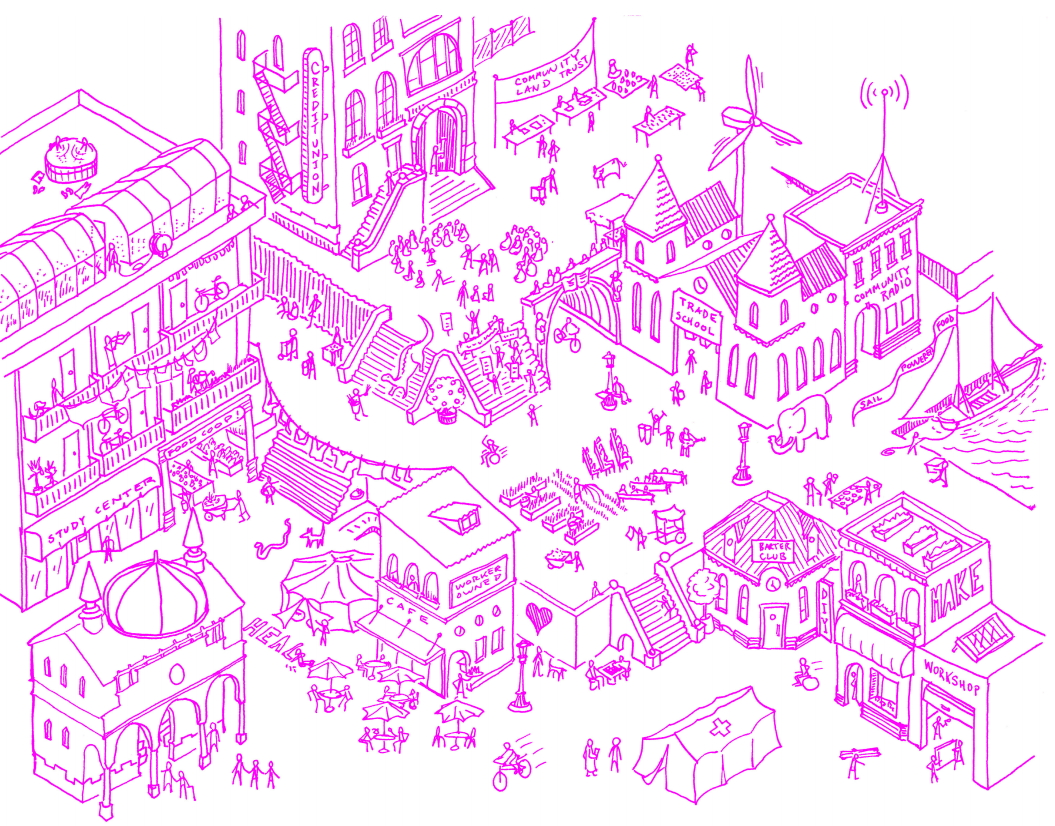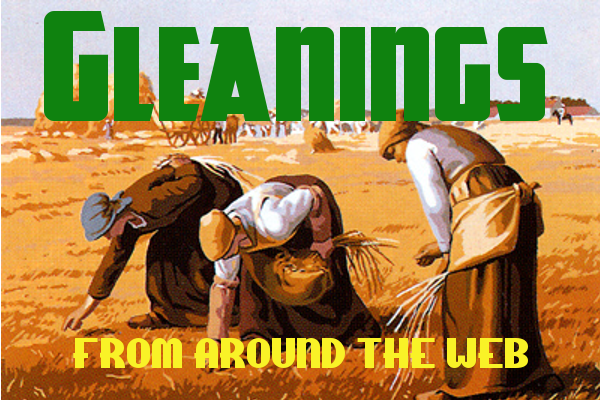This week, retired USDA agricultural economist Bruce J. Reynolds writes about the cooperative economic thought of James P. Warbasse, one of the co-founders of the Cooperative League of the U.S.A. (CLUSA). Warbasse wrote several books on cooperation, one of which - Cooperation as a Way of Peace, published in 1939 - Reynolds argues contains much that is relevant to today's highly polarized political and economic situation.
Then, we return to our on-going project of translating Luis Razeto Migliaro's ambitious work of cooperative economic theory, Cooperative Enterprise and Market Economy, with Chapter 9, a discussion of the economic logic and practice of what Razeto calls "community enterprises and subsistence collectives". That these types of enterprises are considered at all in a book of economic theory - much less given such thorough consideration - highlights one of the major differences between Razeto's text and most books on economic theory; it's also one big reason why GEO member Matt Noyes has devoted so much time and effort in making it available to an English speaking audience.
Unifying With Cooperative Principles
by Bruce J. Reynolds
There is significant literature on how cooperatives improve society and the economy. There are also many forward-looking works on building a cooperative commonwealth or at least establishing a much larger share of the market and of membership in society. This literature provides arguments against dividing people for political gain. Cooperation as a Way of Peace is unique in its sole focus on countering this type of manipulation.
Cooperative Enterprise and Market Economy: Chapter 9
by Luis Razeto Migliaro
Community enterprises are businesses organized by the community, in which the different members of the group contribute the various necessary factors of production without placing a monetary value on their contributions or expecting an individual profit. Organized as a unit of production, community members collaborate, bringing to bear the resources available to them, becoming in the process a communal subject that is at once an integrated work unit and an organizing and decision-making body.
Five questions with “Worker Co-ops of the World Unite!” poster artist
USFWC — My name is Camila Tapia, and I’m the Training and Education Coordinator here at USFWC. I’m also a cooperative artist. By that I mean I have an artist worker-owned co-op called Transverse Cooperative, so I make art cooperatively, my art is often about cooperation, and I create art and design commissions for other co-ops...
Following Sol Power Solar’s Example, R.I. Worker Co-Ops Gain Energy
Eco RI News — Sol Power Solar has installed renewable energy for more than 1,100 customers since becoming an early pioneer in Rhode Island’s solar industry in 2013. The staff credit this success to the company’s business model, in which each employee is an equal owner of the company. Now, Sol Power and a group of fellow cooperative businesses are trying to pave the way for workers to democratically run their own workplaces across the state...
How Do Cooperatives Support Worker Recognition and Political Representation?
WIEGO — More than 15,000 waste pickers – from 45 cooperatives and other local organizations grouped into five regional structures within the country – belong to the National Association of Waste Pickers (Asociación Nacional de Recicladores, ANR). In the face of public policies that favoured a privatized waste management model and criminalized waste pickers’ recovery and recycling activities, organized waste pickers defended their right to work and fought for their inclusion in the waste management system...
Resisting Disaster Capitalism through Mutual Aid in Puerto Rico
Transnational Institute — In post-Maria Puerto Rico, the necessity of rebuilding homes and streets, providing essentials and medication to the elderly, and helping each other overcome the trauma led to the creation of the Mutual Aid network. The need for communal spaces, internet access, activities for children in abandoned rural areas, and support for local agriculture and small traders solidified this grassroots solidarity, transforming it into established organisations that continue to operate beyond immediate relief efforts. The grassroots organisations participating in the network agreed on the principles of mutual aid, solidarity, community sovereignty, sustainability, and justice...
Dan’s Adventures with Ghanaian Co-operators
Co-ops and Mutuals Canada — From 13 to 26 August 2025, CMC was delighted to help showcase the Canadian co-operative mouvement, by coordinating a study tour for a delegation of co-op leaders from Ghana. The four guests included the Acting Secretary General of the Ghana Cooperatives Council, the General Manager and Chair of the Juaboso MICL Cooperatives Cocoa Farmers and Marketing Union Ltd and an Executive member of the BIA West MICL, Cooperatives Cocoa Farmers and Marketing Union Ltd. They were hosted in turn by Denyse Guy, Consultant and former Executive Director of CMC, and Daniel Brunette of CMC...
Like what you find on GEO?
Make a Donation Today!
Your tax-deductible contribution ensures that GEO can continue to provide independent grassroots content about the cooperative and solidarity economy movements.
Got something to say?
Let us know. Send your comments, suggestions, rants and article submissions to editors@geo.coop.
Follow us on Social Media
Mastodon: social.coop/@GEO_Collective
BlueSky: @geocollective.bsky.social
FB: facebook.com/GEOCollective
Instagram: instagram.com/grassrootsecon
Our mailing address is:
Grassroots Economic Organizing
P.O. Box 115
Riverdale MD 20738-0115




